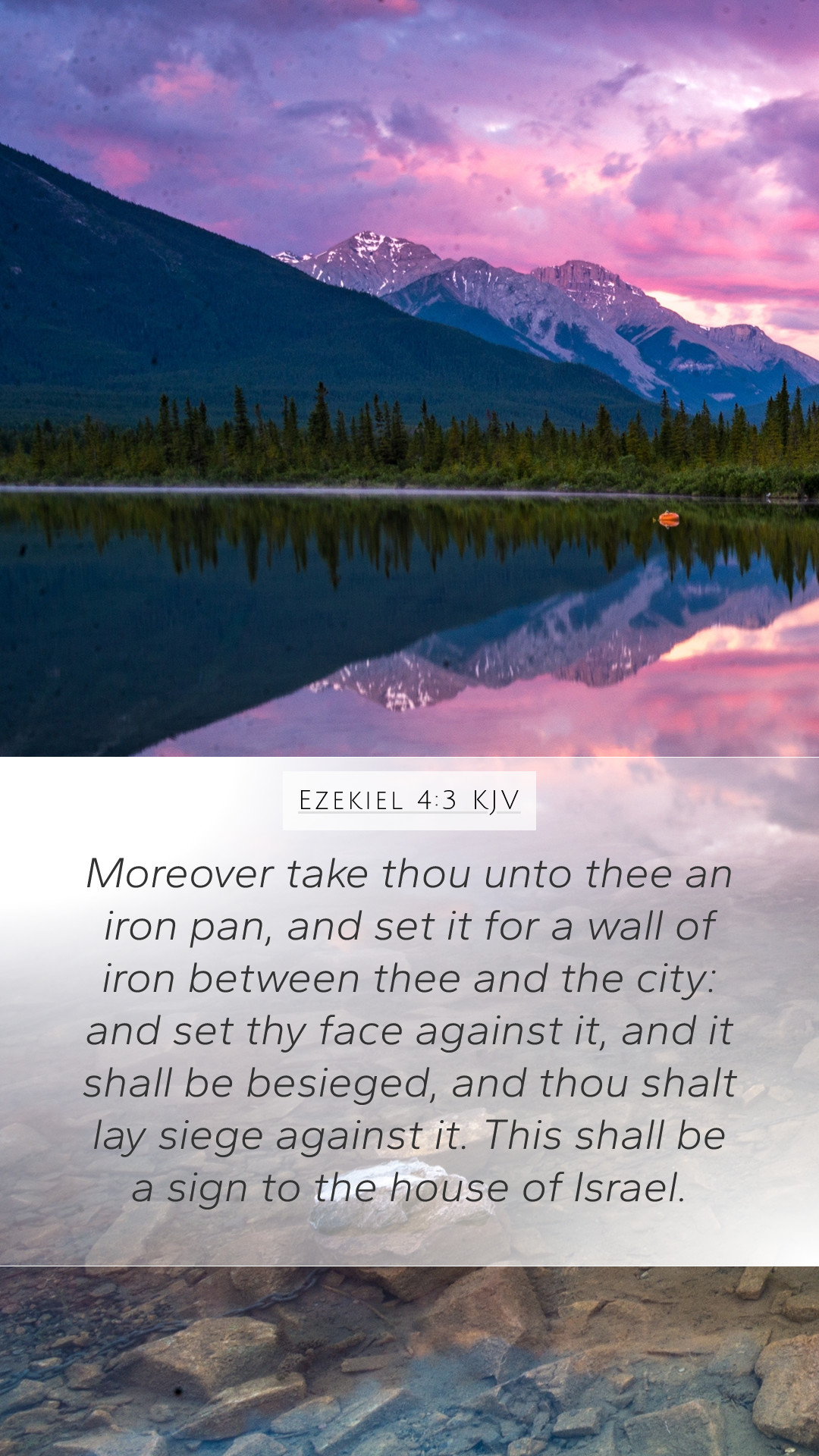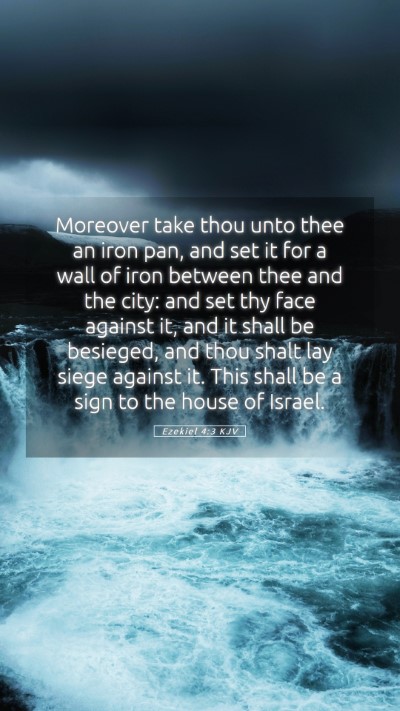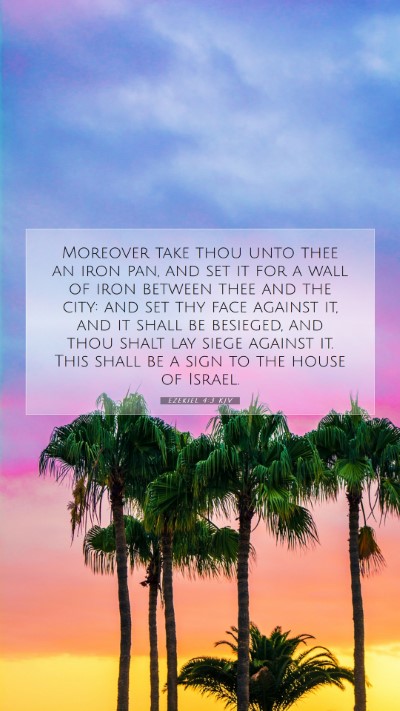Understanding Ezekiel 4:3
The verse Ezekiel 4:3 is part of a larger prophetic context where God instructs the prophet Ezekiel to act out a siege against Jerusalem as a symbolic act. This passage provides a profound insight into God's message towards His people at the time. Below, we summarize the interpretations from well-regarded public domain commentaries, presenting a thorough analysis of this Scripture.
Bible Verse Meaning
Ezekiel 4:3 states: “Moreover, take thou unto thee an iron pan, and set it for a wall of iron between thee and the city: and set thy face against it, and it shall be besieged, and thou shalt lay siege against it. This shall be a sign to the house of Israel.”
This command from God to Ezekiel serves multiple purposes, showcasing God’s sovereignty and the seriousness of Israel's sins. The iron pan symbolizes a fortified wall, indicating that there will be no escape for the city of Jerusalem when divine judgment descends.
Context and Interpretation
- Historical Context: Ezekiel prophesied during a tumultuous time in Israel's history, primarily addressed to those in exile in Babylon. His prophecies often reveal the relationship between sin and impending judgment.
- Symbolism: The iron pan not only represents a barrier but also signifies the permanent nature of God's judgment as He turns away from a rebellious Israel.
- Prophetic Action: Such actions taken by Ezekiel were meant to illustrate God's message vividly. The portrayal of a siege reflects the catastrophic events of the Babylonian conquest of Jerusalem.
Bible Commentary Insights
Bringing insights from prominent Bible commentators:
- Matthew Henry: Emphasizes that Ezekiel's acts were to portray the prophetic message of warning to Israel. The iron pan is indicative of the severity and the enduring nature of God's distant judgment against Jerusalem.
- Albert Barnes: Notes that the symbolic siege represents God’s protection of Ezekiel from the city's impending doom, while simultaneously reflecting the tense spiritual warfare and the consequences of Israel's disobedience.
- Adam Clarke: Highlights that this verse serves as a strong reminder to Israel about the conditional nature of God's covenant and the severe consequences that result from breaking it. The actions of Ezekiel act as a vivid and tangible teaching tool for the people.
Applications and Key Lessons
Understanding Ezekiel 4:3 provides several applications for modern readers:
- Moral Responsibility: The passage emphasizes the moral responsibilities individuals have towards God and the consequences of unfaithfulness.
- Symbolism in Faith: The use of symbols in this narrative encourages believers to consider how spiritual truth can be communicated through actions and imagery.
- Caution Against Apostasy: It serves as a warning not to stray from God's path, illustrating the depth of God's concern for the covenant relationship with His people.
Cross References
Related passages that offer further insight into the themes and messages found in Ezekiel 4:3 include:
- Ezekiel 3:26-27: God’s command to Ezekiel to deliver His messages despite the people's hardness of heart.
- Jeremiah 21:4-10: Another prophetic message concerning the siege of Jerusalem and God’s decree of judgment.
- Lamentations 2:8-9: Describing the reality of Jerusalem’s destruction and the heaviness of the judgment upon it.
Conclusion
This exploration of Ezekiel 4:3 allows for a deeper understanding of Scripture through careful analysis and reflection. It highlights the richness of biblical exegesis, encouraging believers to engage with the text in a way that brings meaning to their faith and daily lives. Whether in a Bible study group, through online Bible study, or using various Bible study resources, this verse serves as a powerful reminder of God’s expectations and the realities of His covenant with humanity.


